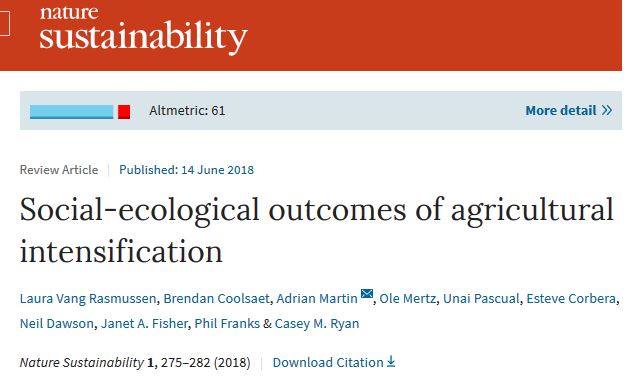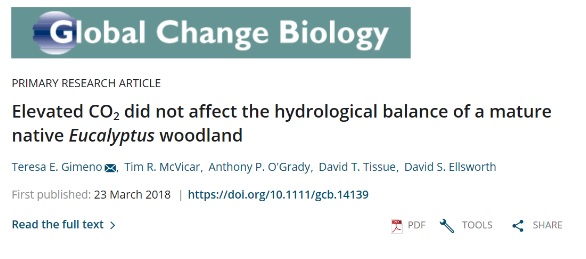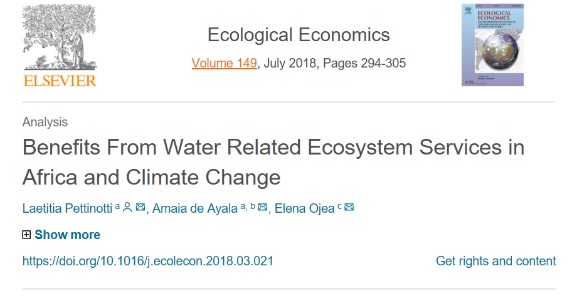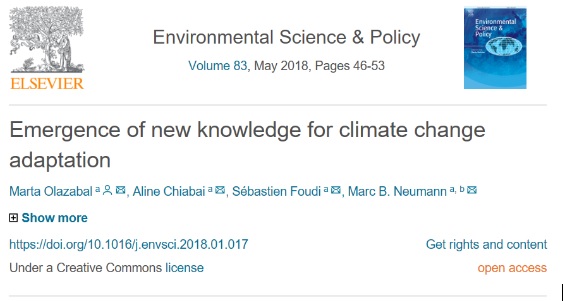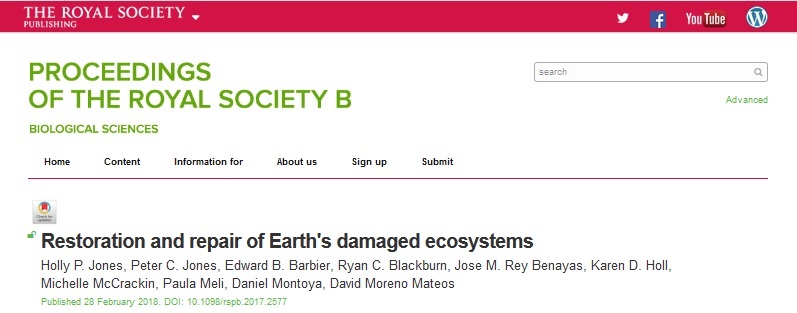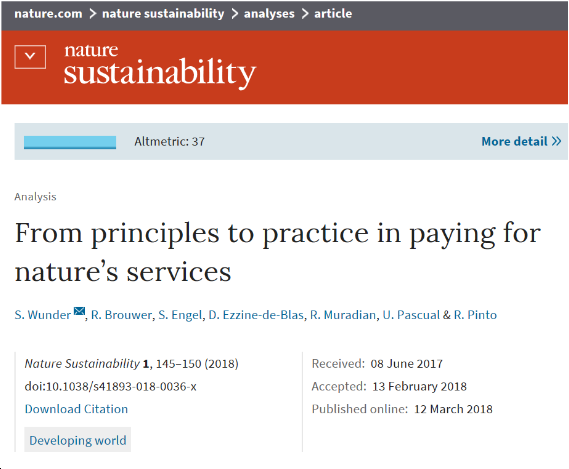
We provide the knowledge and scientific criteria of a multidisciplinary and international research team, connected with the scientific centers and multilateral reference bodies throughout the world. We transfer knowledge and contribute to the training in excellence of the future research generation
Means of Research & Outputs
View and share the recent BC3 scientific publications that contain authors ‘edits and social media impact metrics.
Access to the Research Projects BC3 is involved in and access to their social media channels.
BC3´outputs and activities carried out within the scientific research process.
Knowledge Transfer. BC3 initiatives
DISSEMINATION
- Scientific meetings
- BC3 Seminar Programme
- BC3 Visiting Programme
- BC3 Working Papers Serie
SCIENCE EDUCATION AND PUBLIC AWARENESS
June 21, 2018
Published by BC3Research Aline Chiabai Marc Neumann at June 21, 2018
Categories
The study aims to explore the main drivers influencing the economic appraisal of heat warning systems by integrating epidemiological modelling and benefit-cost analysis. To shed insights on heat wave mortality valuation, we consider three valuation schemes: (i) a traditional one, where the value of a statistical life (VSL) is applied to both displaced and premature mortality; (ii) an intermediate one, with VSL applied for premature mortality and value of a life year (VOLY) for displaced mortality; and (iii) a conservative one, where both premature and displaced mortality are quantified in terms of loss of life expectancy, and then valued using the VOLY approach. When applying these three schemes to Madrid (Spain), we obtain a benefit-cost ratio varying from 12 to 3700
Do you like it?
June 15, 2018
Published by BC3Research Unai Pascual at June 15, 2018
Categories
Land-use intensification in agrarian landscapes is seen as a key strategy to simultaneously feed humanity and use ecosystems sustainably, but the conditions that support positive social-ecological outcomes remain poorly documented. We address this knowledge gap by synthesizing research that analyses how agricultural intensification affects both ecosystem services and human well-being in low- and middle-income countries.
Do you like it?
May 4, 2018
Published by BC3Research at May 4, 2018
Categories
Elevated atmospheric CO2 concentration might reduce forest water‐use, due to decreased transpiration, following partial stomatal closure, thus enhancing water‐use efficiency and productivity at low water availability. If evapotranspiration is reduced, it may subsequently increase soil water storage or surface runoff and drainage, although these could be offset or even reversed by changes in vegetation structure, mainly increased leaf area index.
Do you like it?
May 3, 2018
Published by BC3Research Laetitia Pettinotti Amaia de Ayala at May 3, 2018
Categories
The present study collects original monetary estimates for water related ecosystem service benefits on the African continent from 36 valuation studies. A database of 178 monetary estimates is constructed to conduct a meta-analysis that, for the first time, digs into what factors drive water related ecosystem service values in Africa
Do you like it?
May 3, 2018
Published by BC3Research Marc Neumann Marta Olazabal Aline Chiabai Sebastien Foudi at May 3, 2018
Categories
Decision-making for climate change adaptation requires an integrated and cross-sectoral approach to adequately capture the complexity of interconnected systems. More meaningful decisions can be taken in an arena where different agents provide knowledge of specific domains. This paper uses a semi-quantitative method based on cognitive mapping to demonstrate how new knowledge emerges when combining knowledge from diverse agents.
Do you like it?
April 25, 2018
Published by BC3Research David Moreno at April 25, 2018
Categories
Given that few ecosystems on the Earth have been unaffected by humans, restoring them holds great promise for stemming the biodiversity crisis and ensuring ecosystem services are provided to humanity. Nonetheless, few studies have documented the recovery of ecosystems globally or the rates at which ecosystems recover. Even fewer have addressed the added benefit of actively restoring ecosystems versus allowing them to recover without human intervention following the cessation of a disturbance.
Do you like it?
March 19, 2018
Published by BC3Research Unai Pascual at March 19, 2018
Categories
Payments for Environmental Services (PES) constitute an innovative economic intervention to counteract the global loss of biodiversity and ecosystem functions. In theory, some appealing features should enable PES to perform well in achieving conservation and welfare goals. In practice, outcomes depend on the interplay between context, design and implementation. Inspecting a new global dataset, we find that some PES design principles pre-identified in the social-science literature as desirable, such as spatial targeting and payment differentiation, are only partially being applied in practice.
Do you like it?
March 13, 2018
Published by BC3Research David Moreno at March 13, 2018
Categories
Given that few ecosystems on the Earth have been unaffected by humans, restoring them holds great promise for stemming the biodiversity crisis and ensuring ecosystem services are provided to humanity. Nonetheless, few studies have documented the recovery of ecosystems globally or the rates at which ecosystems recover.
Do you like it?
March 5, 2018
Published by Anil Markandya Mikel González-Eguino Iñaki Arto Jon Sampedro cristina.pizarro at March 5, 2018
Categories
Although the co-benefits from addressing problems related to both climate change and air pollution have been recognised, there is not much evidence comparing the mitigation costs and economic benefits of air pollution reduction for alternative approaches to meeting greenhouse gas targets. We analysed the extent to which health co-benefits would compensate the mitigation cost of achieving the targets of the Paris climate agreement (2°C and 1·5°C) under different scenarios in which the emissions abatement effort is shared between countries in accordance with three established equity criteria.
Do you like it?
February 15, 2018
Published by Maria Jose Sanz BC3Research at February 15, 2018
During 12-14th of February, the GFOI R&D Coordination component, the GOFC-GOLD Land Cover Office, and BC3 Basque Center for Climate Change organized the 3rd Expert workshop on lessons learned from Accuracy Assessments in the context of REDD+: Uncertainties of emission factors and biomass maps in Leioa.
Do you like it?


